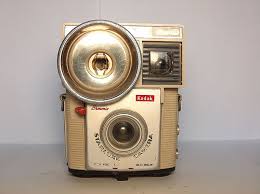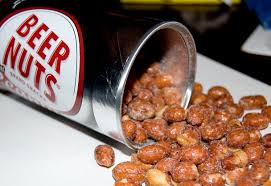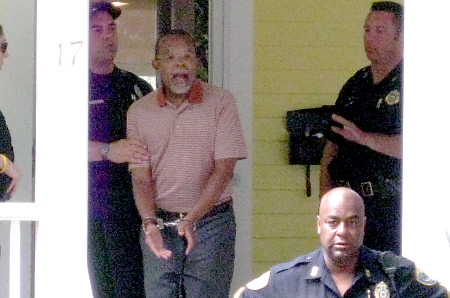EMBRACING ALOHA
Senate honors Hawaii's 50 years of statehood
On Monday, Hawaii's Health Department confirmed that Obama's Aug 4, 1961, birth certificate was official, quashing claims by some conspiracy theorists — also known as "birthers" — that the 44th president was born in Kenya and not qualified to be president.
The state of Hawaii has been a rich cultural addition to the United States thanks to the ancient culture of the Native Hawaiians, the diverse multi-racial society created by generations of Asian and European immigrants, and the stunning natural beauty of our tropical climate.
Akaka, a Native Hawaiian, extolled the virtues of the Aloha spirit in his floor speech.
"Everyone who comes to Hawaii embraces the Aloha spirit," he said. "Aloha seeks to do good with no conditions attached. ... This is the meaning of Aloha."
The diversity of our roles in modern America is rivaled only by the diversity of our people—we are the only State without a majority ethnicity.
THE BREAKDOWN
White persons, percent, 2007 (a) 29.1%
Asian persons, percent, 2007 (a) 39.9%
Black persons, percent, 2007 (a) 2.9%
American Indian and Alaska Native persons, percent, 2007 (a) 0.5%
Native Hawaiian and Other Pacific Islander, percent, 2007 (a) 8.9%
Persons reporting two or more races, percent, 2007 18.6%
Persons of Hispanic or Latino origin, percent, 2007 (b) 8.2%
White persons not Hispanic, percent, 2007 24.7%
//////////////////////////////////////////////////////////////////////////
With an African-American population hovering at only about 3 percent of the total, it is easy to overlook the important contributions of blacks in Hawaii.
Aloha! http://www.hawaiiforvisitors.com/people/african-americans.htm
In the early 1800s many African Americans men found their way to the Hawaiian Islands Kingdom on whaling and merchant ships. Some were descendants from Black
Portuguese of the Cape Verde Island off the coast of West Africa, and others were from the mainland U.S. A. escaping the burden of slavery. Native Hawaiians welcomed their foreign Black brothers. Many of these African Americans were knowledgeable and
possessed special skills. They served as advisors to King Kamehameha’s admini -
stration and acted as interpreters for the Monarchy. Some became entrepreneurs, musicians and small businessmen serving foreigners. In the downtown area near the Iolani Palace during the early evening, the King’s band could be seen strolling along King Street & Fort Street Mall playing their instruments. The King’s band consisted of four African American men.
The most notable among African Americans arriving in the Hawaiian Islands was Anthony Allen. Allen was born in 1774. His mother was probably a slave and his father
was a free man. Allen himself was freed at age 24 through a combination of skill and luck. He fled to Boston like his father before him. He became a ship hand on a merchant ship that took him to China, the West Indies and the Northwest coast of American and to Hawaii, where he settled around 1810. Allen served as stewart to Kamehameha the Great.
He acquired about six acres of land from the high priest Hewahewa near the Waikiki area on Oahu. This piece of land began at Punahou and King Streets where the present Washington Middle School is located, continuing down to Ward Avenue fronting the Honolulu Academy of Arts. Allen married a Hawaiian woman and they had three children who survived into adulthood. They, had children of their own. His grand children continued his legacy. Allen was a successful businessman and farmer. He owned cattle, chickens, pigs and horses. In addition, he had a vegetable garden.
He built a boarding house, bowling alley and hospital. The hospital was a place for sick sea captains and injured merchant seamen to recuperate on shore. Allen was respected and admired by missionaries and Native Hawaiians. The missionaries depended upon him for fresh vegetables, milk and eggs. The boarding house had a restaurant which was popular with the missionaries. King Kamehameha used it often to entertain his guests.
The first known African American woman that came to the Hawaiian Islands was Betsey Stockton. She came with the Charles Stewart family who were missionaries. Betsey was given her freedom prior to leaving for the Hawaiian Islands. The Stewart family resided in Lahaina, Maui. Native Hawaiians fell in love with Betsey. They brought their sick children to her to be nursed back to good health. She in turn reached out to them and learned to speak the Hawaiian language. This gave her an opportunity to teach the commoner Hawaiian children how to read and write. Betsey Stockton’s humanitarian efforts were considered to be the beginning of the first public school system in the Hawaiian Islands.
Five years after the overthrow of the Hawaiian Kingdom, Thomas McCant Stewart, an attorney came to Hawaii in 1898. He was the first African American to practice law in Hawaii's court system.
In 1892, Hawaii enacted the Chinese Exclusionary Act to prevent Chinese immigration
from coming to the Islands. Stewart was vehemently against the act. Needless to say, he represented Chinese immigrants and assisted Native Hawaiians in regaining their land rights.
His daughter, Carlotta Stewart Lai, was 18 years old when she arrived in Hawaii to join her father. She graduated from the Punahou School that was established by the missionaries, and became a teacher. Her talents and skills were recognized. She was promoted to be principle at Anahole School on Kauai. Carlotte was a refined cultured professional African American woman who was highly regarded. As principal of Anahole School, she became involved in the community. She met her husband Yum Kim Lai who was from a well-known Chinese family. In 1935, her husband traveled to Hong Kong, where he died suddenly. Carlotta lived on Kauai many years until her retirement. She moved back to Honolulu and maintained her contact with her sister-in-law Ruth Ching until her death in 1952. She is buried in Oahu cemetery.
During the early 1900's the Island of Maui attracted a number of notable African Americans. One of them was Dr. William Lineas Maple. In 1902, The Hawaii
Commercial Sugar Company hired Dr. Maples to be the physician for the plantation
workers. Before coming to Hawaii, Dr. Maples practiced medicine in Knoxville,
Tennessee. His brother, Samuel Maple an attorney, followed him to the Island of
Maui. The family was loved and respected by the people on the Island. The Maple
School on Maui was named for the family. Dr. Maples died in 1943, leaving a wife
and two daughters.
Famous African Americans in Hawaii's History
An introduction to famous African Americans in Hawaii and African Americans in Hawaii's history.
Famous African Americans With Hawaii Connections
Anthony D. Allen
He was born in New York and immigrated to Hawaii in 1810. He married a Hawaiian woman, he bought land and livestock, and he became a prosperous farmer. He died in 1835.
Alice Augusta Ball
Barack Obama Grew Up in Hawaii
United States President Barack Obama grew up in Hawaii and he attended Punahou School.
Betsey Stockton
Ex slave of the President of Princeton University. She arrived in Hawaii with the Charles Stuart family as part of the 2nd group of missionaries to arrive in Hawaii from New Haven Connecticut on the ship "Thames". She learned the Hawaiian language and was one of the founders of the Lahainaluna School on Maui. She taught there 1923-1925.
"Black Jack"
Black Jack - also known as Mr. Keakaeleele was living on Oahu when King Kamehameha conquered the island inn 1796. He helped build a Lahaina storehouse for Queen Kaahumanu and I believe he was also a sailor in the maritime industry.
"Black Joe"
Sail maker for King Kamehameha II. He died in 1828.
Carlotta Stewart Lai
Doris "Dorie" Miller
Frank Marshall Davis (moved to Hi in 1948?)
Herman Frazier
Born: October 29, 1954
1976 Olympic Gold medalist ( 4x400 meter relay)
Kamaka Fernandez
African American Kamaka Fernandez was born in Little Rock, Arkansas but he grew up immersed in Hawaiian culture on the island of Maui. Today e is one of Hawaii's top traditional Hawaiian falsetto singers.
Miles M. Jackson
University of Hawaii professor Miles M. Jackson has been doing research since 1980 on African Americans in Hawaii. Books he has written include "And Then They Came: A Brief History of Blacks in Hawaii" (2001) and "They Followed the Trade Winds: African Americans in Hawaii" (2005). Professor Jackson also has a column in Mahogany Magazine and he is a contributing writer for the Honolulu Advertiser.
Profile of Miles M. Jackson at BlackPast.org
Miles M. Jackson on Blacks and Hawaii's Plantations
Nolle Smith
Richard Armstrong
Born in Pennsylvania in 1805. Son of a black minister. He and his wife Clarissa Chapman Armstrong arrived in Hawaii in 1832 with the 5th company of missionaries after being stationed for a year in the Marquesas islands. He built a church on Maui and he was pastor of the Kawaiahao Church in Honolulu from 1840 to 1848. His son Samuel Chapman Armstrong (1839-1829) was the founder of the Hampton Institute in Virginia.
Samuel Lee Gravely
Wally Amos
William Lineas Maples (1869-1943)
Doctor and musician William Lineas Maples ws born in Sevierville, Tennessee, on March 31, 1869 and he became a doctor in 1893. After serving in the medical unit of an all-black regiment of the United States army, he was recruited by the Hawaii Commercial and Sugar Company to work as an Anesthetist at their hospital in Puunene. William Maples died at age 73, in 1943, in Wailuku, Maui.
BlackPast.org Profile of Willilam Lineas Maples
Minority Professional Network: Profile of Willilam Lineas Maples
William Saunders Scarborough (1852-1926)
William S. Scarborough was born in Macon, Georgia on February 16, 1852 and he was the son of a slave and a free black man. He taught Greek and Latin for a few years at Wiberforce University in Ohio and served as that university's president from 1908 through 1920. In March of 1984 he made a speech declaring his opposition to the United States annexation of Hawaii.
1984 Speech: "The Ethics of the Hawaiian Question"
Profile: Wikipedia William Sanders Scarborough Article
Articles About African Americans With Hawaii Connections
Famous African Americans in Hawaii's History
An introduction to Hawaii's most well-known African Americans of the past and present. Includes profiles of Anthony Allen, Alice Ball, Barack Obama, Betsey Stockton, Carlotta Lai, Kamaka Fernandez, Miles Jackson, Nolle Smith, Samuel Gravely, William Maples, and William Saunders Scarborough.
African Americans of the Hawaiian Islands
The full title of this four part article by Darlene E. Kelley is "Keepers of the Culture - A study in Time of the Hawaiian Islands - African Americans in Hawaii".
Part 1 - Part 2 - Part 3 - Part 4
Black Plantation Laborers in Hawaii
The History of African Americans in Hawaii
An article by Deloris Guttman and Hugo R. Miller of the African American Cultural Center Hawaii.
Exhibit Featured African Americans in Hawaii
In July of 2000 the Bishop Museum asked Hawaii residents to donate artifacts and photographs Hawaii's most prominent black citizens and African American history.
Life Histories of African Americans in Hawaii
UH Professor Kathryn Waddell Takara audio taped oral interviews with ten older African Americans on Oahu in 1988 so they could be included in "Oral Histories of African Americans". Those interviewed included Walter Alexander, Gladys Crampton, Bertha Dunson, Ernest Golden, Howard Johnson, Alexander Lewis, Lucille Maloney, Ulyless Robinson, and William Waddell.
2000 Exhibit Featured African Americans in Hawaii
In July of 2000 the Bishop Museum asked Hawaii residents to donate artifacts and photographs Hawaii's most prominent black citizens and African American history.
/////////////////////////////////////////////////////////////////////
Warrior coach McMackin apologizes for gay slur
HOW HOMOSEXUALS BECAME FAGGOTS
A faggot or fagot is a bundle of sticks or branches, usually meant for use as firewood. It derives [1] through the Old French fagot and the Italian diminutive fagotto from the Latin Fasces ("bundle", also the origin of the word Fascism). It has also been used on occasion to refer more specifically to wood for funeral pyres or a burning at the stake,

Who would call a Black person, a noose, or a Jewish person, an oven,
or a Native American, a small pox infested blanket?
Labels: birthers homosexuals blacks in hawaii african americans












